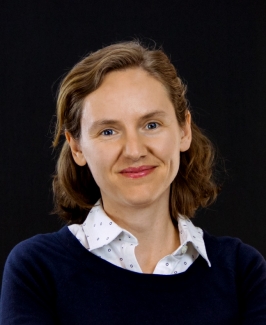JILA Fellow Cindy Regal has been named a 2018 Alexander M. Cruickshank Lecturer by the Gordon Research Conferences (GRC).
This prestigious title is given worldwide to scientists at the top of their fields in the physical, chemical, and biological sciences.
Regal will present her Cruickshank Lecture, entitled "Interferometers Harnessing Micromechanical Motion for Quantum Metrology and Information”, on Sunday, 29 July 2018, after the introductory dinner of the Quantum Science GRC.
The 2018 GRC in Quantum Science will be held at Stonehill College in Easton, MA, 29 July – 3 August 2018. The 2018 GRC in Quantum Science is chaired by JILA Fellow and 2017 Cruickshank Lecturer Dr. Ana Maria Rey and Dr. Andrew Houck. The Quantum Science GRC brings together senior scientists, along with students and postdocs, to discuss the frontiers of quantum science and report experimental and theoretical advances.
Past Alexander M. Cruickshank Lecturers include Nobel Laureates Eric Cornell of JILA and Dave Wineland of NIST Boulder. Other past winners with ties to JILA include Ana Maria Rey (JILA Fellow), Immanuel Bloch (Ludwig-Maximilians University and Max Planck Institute of Quantum Optics), Mikhail Lukin (Max Planck Institute of Quantum Optics and Harvard University), and 1997 Nobel Laureate Claude Cohen-Tannoudji (University of Paris).
The Alexander M. Cruickshank lectures were established by the GRC Board of Trustees to honor former director Dr. Cruickshank. These lectures, presented at Gordon Conferences, keep with the GRC tradition of presenting research at the frontiers of Science.



 The Physics Frontiers Centers (PFC) program supports university-based centers and institutes where the collective efforts of a larger group of individuals can enable transformational advances in the most promising research areas. The program is designed to foster major breakthroughs at the intellectual frontiers of physics by providing needed resources such as combinations of talents, skills, disciplines, and/or specialized infrastructure, not usually available to individual investigators or small groups, in an environment in which the collective efforts of the larger group can be shown to be seminal to promoting significant progress in the science and the education of students. PFCs also include creative, substantive activities aimed at enhancing education, broadening participation of traditionally underrepresented groups, and outreach to the scientific community and general public.
The Physics Frontiers Centers (PFC) program supports university-based centers and institutes where the collective efforts of a larger group of individuals can enable transformational advances in the most promising research areas. The program is designed to foster major breakthroughs at the intellectual frontiers of physics by providing needed resources such as combinations of talents, skills, disciplines, and/or specialized infrastructure, not usually available to individual investigators or small groups, in an environment in which the collective efforts of the larger group can be shown to be seminal to promoting significant progress in the science and the education of students. PFCs also include creative, substantive activities aimed at enhancing education, broadening participation of traditionally underrepresented groups, and outreach to the scientific community and general public.